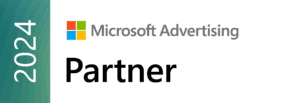
periscopeUP makes you look great on any device
I’ve been known to join (ok, maybe instigate) a millennial-bashing session or two. I admit I find many millennials excruciatingly frustrating. As someone who’s spent most of her career in marketing & communications, I’m concerned that this generation simply cannot engage in non-device oriented conversation.
This spring – following the lead of Bank of America, Aetna and Yahoo – IBM announced a massive move to reduce the telecommuting workforce giving thousands of employees a choice: leave the home workspace and return to a regional office — or leave the company. IBM explained that putting employees in the same physical space increases collaboration and will spark innovation.
Whether collaboration fuels innovation, or if that’s the real motive behind IBM’s move – these are topics for another time. For now, this shift signals a return to in-person work settings to foster greater collaboration. Uh oh… doesn’t collaboration require communicating?
Need more traffic and conversions? Contact us online or call (443) 475-0787.
They Were Born Into It
Millennials came of age digitally connected which makes them super capable with new media. However, it’s generally agreed interconnectivity has stunted inter-personal communications growth. Fact: 39% of millennials admit to interacting more with their phones than the actual people in their lives.
Still, according to the Pew Research Center, the 53.5 million millennials are the most prominent generation in the modern workforce. For a group sorely lacking the ability to communicate, along with most soft skills, should we expect abysmal corporate failure? And what does this mean for the future of organizations like IBM or Yahoo and those that may follow?
The Old Basics Are The Critical Building Blocks
Effective communication is more important than ever. Developing basic skills doesn’t require a Ph.D. Start with these steps:
Listen
You can’t be a good communicator if you don’t listen. Really “hearing” someone is not a passive activity. To be a good listener you must pay attention. Research shows that about 85% of communication is nonverbal. Here are a few basics to get better at listening:
- Look up! Face the speaker. Maintain eye contact.
- Be attentive, but relaxed.
- Keep an open mind.
- Listen to the words and try to picture what the speaker is saying.
- Don’t interrupt and don’t impose your “solutions.”
Genuine listening builds successful relationships, solves problems, ensures understanding, resolves conflicts and improves accuracy. Remember, look up.
Write
Can you imagine Amazon or Apple reporting quarterly earnings in text and emojis? Texts, tweets and emojis are no substitute for the written materials businesses require. As a professional who’s built her career on the back of strong writing skills, I completely agree with CJ Wilson, “Businesses still need strong writers for reports, white papers, marketing documents, and on and on. And we’re finding that millennials that can do this are in very short supply.”
If you didn’t take formal writing courses, and you’re not going back to school, here are easy-to-integrate tips from Andrew Moran’s “How Millennials Can Improve Their English Writing Skills:”
- Reading. Rather than perusing Twitter, start reading a book. It’ll help you significantly.
- Writing. Whether it’s a short story or a blog post, everyone should write as a hobby occasionally. Of course, it’s crucial that you’re writing correctly and learning from it.
- Skip Text Speak. You may not realize it, but writing this way can dwindle your spelling skills. Next time you text a friend, write something professionally and courteously: “Hello, how are you? I’ll see you in a couple of hours. Bye.”
- Turn Off Spellcheck. Instead of relying on Microsoft Word, turn off spellcheck and seek out spelling mistakes on your own. If you’re unsure if you spelled something wrong pull out your dictionary (or visit dictionary.com) and find the right spelling.
- A Word Book. Keep a journal composed of unique words or words you’re unfamiliar with that you come across each day in newspapers, websites, magazines, textbooks and elsewhere.
- A List of Misspelled Words. Some of the most common misspelled words are “definitely,” “weather” and “embarrassing.” If you constantly misspell words, create your own list and read through it from time-to-time.
Speak
Millennials are incredibly bold when posting provocative content or photos. But ask them to have an in-person conversation – let alone a confrontation – and they panic.
Speaking skills are a sorely underrated component of successful communication. Whether it’s a meeting with four of your teammates or a town hall of 400 people, the ability to speak convincingly is critical in business. There are a host of areas where speaking opportunities add value such as interviews, presentations and sales pitches. Millennials can acquire the unique ability to engage well in front of a small group or crowd to inspire teams and win customers.
It’s worth spending some time watching speeches, debates or presentations on YouTube. When you listen to inspirational people speak convincingly, you’ll discover that your own verbal skills improve.
It’s Not Just Up To Them
Mentor
I didn’t arrive at this point in my career on the merits of my own brilliance. My achievements are due in equal parts to my own hard work and the managers who developed/mentored me along the way. Like each generation before, as leaders we need to commit to the time to teach, develop, mentor and coach.
Learn
Do we appreciate how mind-numbingly frustrating it must be for millennials who work for people that are clueless about technology? How can we expect the respect and hard work of this generation if we’re not committed to adopting and adapting as well? Maybe we don’t need to try every emerging tech or download hundreds of apps, but admit it… how many of us really know if our website is responsive? Or how to accurately measure results by tracking metrics? We can’t call them lazy and uninterested if we’ve embraced the same poor habits.
Create
It’s our job to make communications relevant to the millennial just as brands need to be relevant to customers. Companies should invest in ongoing public speaking and communications training programs. Figure out new and innovative ways to integrate learning and development. Explore the best ways to engage and train this generation which includes adopting the most appropriate tech. Consider developing writing courses that can be delivered through video technology like Shindig. Better yet, ask your millennials to recommend the technology they like to use.
You could even try reverse education. Develop a program where your millennials coach/teach older employees about new technology. Whatever it is, create new leadership and skills development programs with millennials in mind.
Some Things Never Change
Online interaction and technology have fundamentally changed how we do business – that’s not going to change. Neither is the importance of inter-personal exchange and communication. These are as critical to our business success as ever.
Sure, we can sit around at dinners and bash millennials. Maybe I still will. But I’ve realized that developing millennials for success – and impacting the future – is as much my responsibility as it is theirs.
Lauren Kronthal is a guest blogger to PeriscopeUp. She’s an award-winning marketing/communications professional and lives in Baltimore, MD.
Improve your audience appeal with periscopeUP. Contact us online or call (443) 475-0787.







